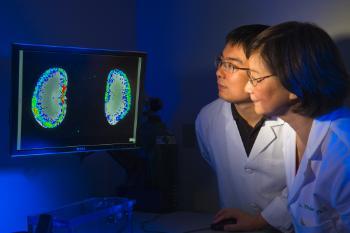Faculty Advising
Graduate Education
Ph.D. Graduate Advisory Committee

The graduate student adviser for the first year in the program is Dr. Keith Shelton, Director of Graduate Education. Upon completion of the research rotation course, usually at the end of the first year, students select a permanent advisor (mentor). The department has two guidelines for faculty related to advising students:
- Faculty members may have a maximum of three students working under their supervision at any given time.
- The proposed faculty adviser, along with the vice chair and chair agree to a plan for the funding of the stipend, health insurance and research expenses for the student when the decision for an adviser is made.
After selecting an advisor, full-time students immediately begin carrying out supervised research. The student and adviser are expected to choose a tentative dissertation project by the start of the second year’s fall semester. The student and the adviser, who chairs the advisory committee, select a Graduate Advisory Committee.
The Graduate Advisory Committee consists of five members, with at least two members from outside of the department and usually from two different departments. The committee functions to assist the student in determining their course plan, help in the finalization of a dissertation project and, eventually, approve the dissertation and conduct the comprehensive and final examinations. For students enrolled in the MS Program, the advisory committee consists of a minimum of three faculty members, with at least one from outside the department.
All students defend a dissertation (Ph.D. or MS) based on original research. This constitutes the major effort of Pharmacology and Toxicology Graduate Students and should be completed in four to five years (Ph.D.) or two years (MS).